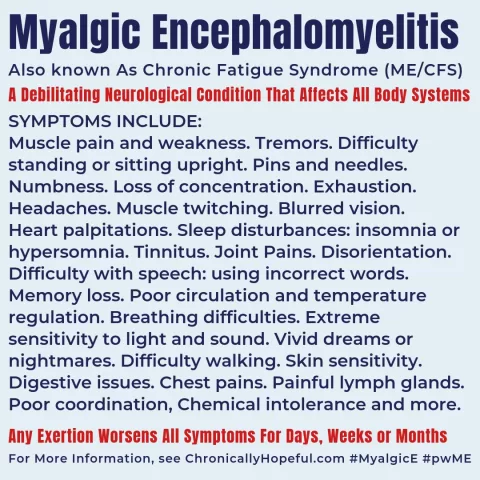Common viruses in children are a significant concern for parents, especially during the colder seasons when ailments such as colds, flu, COVID-19, and respiratory syncytial virus (RSV) peak. Understanding cold symptoms in children is crucial for early detection and treatment, allowing parents to respond appropriately and help their kids recover more effectively. Implementing flu prevention tips, such as vaccinations and hand hygiene, can drastically reduce the chances of your child falling ill. As you navigate through this season, staying informed about COVID-19 in kids and the latest RSV vaccine information can empower you to make the best health decisions for your family. By adopting proactive pediatric health tips, you can create a safer environment and ensure your children’s well-being throughout the winter months.
When discussing the prevalence of viruses affecting young ones, it is imperative to recognize the various respiratory infections that often circulate in children’s social settings. These ailments, ranging from the common cold to more serious conditions like the flu and respiratory viruses, can cause considerable distress for both children and parents alike. Knowing the signs of these infections, alongside prevention strategies, is key to safeguarding your child’s health. Keeping current with recommendations about vaccinations and health practices can significantly aid in minimizing infection rates within families and communities. Emphasizing good hygiene and proper medical advice will help ensure that your child remains healthy and active during peak virus seasons.
Understanding Common Viruses in Children
Children are particularly susceptible to various viruses, especially during colder months when respiratory infections are on the rise. Common viruses include the cold, influenza, RSV, and COVID-19. Each of these viruses presents its own set of symptoms, making it essential for parents to be vigilant in monitoring their children’s health. Recognizing the symptoms of these common illnesses, such as fever, cough, and fatigue, can help parents take timely action. For confidence in diagnosis, consulting with a pediatrician is crucial.
As children socialize more, particularly in school or playgroup settings, they increase their exposure to these viruses. Common symptoms of colds in children include sneezing, a runny nose, and cough. Influenza might mimic these signs but typically involves a higher fever and more significant body aches. Recognizing these differences can be helpful for proactive intervention and better management of your child’s health during viral seasons.
Flu Prevention Tips for Parents
Preventing the flu in children requires a multi-faceted approach focusing on hygiene and vaccination. One of the most effective flu prevention tips is to ensure your child receives their annual flu vaccine. This immunization not only helps reduce the risk of contracting the virus but also minimizes the potential for severe illness. Additionally, teaching your children proper handwashing techniques can significantly reduce the spread of viruses, especially during flu season.
Aside from vaccinations and hygiene, maintaining a healthy lifestyle is key to flu prevention. Encourage your children to eat a balanced diet rich in fruits and vegetables, stay hydrated, and get adequate sleep. Regular physical activity also plays a vital role in bolstering your child’s immune system, allowing them to fight off infections more effectively. Parents should also be proactive about keeping their children home when they are symptomatic to prevent spreading illness to classmates.
COVID-19 and Kids: Safety Measures
While COVID-19 remains a concern, understanding its impact on children is essential. Most children experience mild symptoms, similar to those of a cold or flu, but they can still transmit the virus. Parents should educate children about safety measures, including wearing masks in crowded places and practicing social distancing. Regular handwashing, especially after being in public spaces, is crucial to reduce the likelihood of contracting or spreading COVID-19.
In addition to preventive measures, parents should stay updated with the latest guidelines from healthcare authorities regarding COVID-19 vaccinations for children. Getting vaccinated significantly lowers the risk of severe illness and complications from COVID-19. Parents must engage with their pediatricians for personalized advice and considerations for their child’s health history when deciding on vaccinations.
The Importance of the RSV Vaccine
Respiratory Syncytial Virus (RSV) is another significant concern, particularly for infants and young children, as it can lead to severe respiratory complications. The recently approved nirsevimab injection offers a preventive measure for infants up to eight months old, providing crucial protection during RSV season. Educating parents about this vaccination could help decrease hospitalizations related to RSV and ensure a healthier winter for vulnerable children.
It’s vital for parents to consult with their pediatricians about the RSV vaccine and other immunization schedules. Given that RSV is prevalent during the colder months, understanding when and how to vaccinate can make a substantial difference in your child’s health outcomes. Parents should also be aware of the signs of RSV, which can include wheezing, difficulty breathing, and dehydration, ensuring they seek medical attention promptly for suspected cases.
Recognizing Cold Symptoms in Children
Cold symptoms in children can manifest in various ways, often including a runny or stuffy nose, cough, and mild fever. These symptoms can be concerning for parents, especially when trying to distinguish between a cold and other more serious infections. It’s important to note that while colds are generally mild, they can still disrupt a child’s daily routine, including school attendance and playtime.
Encouraging your child to rest, stay hydrated, and consume nutritious foods can help them recover more quickly from a cold. Parents should also maintain communication with their pediatricians if symptoms persist or worsen, as these professionals can guide on when to seek further treatment and how to alleviate discomfort at home.
Home Remedies for Common Viral Symptoms
Home remedies can often ease mild symptoms associated with common viruses in children. For instance, honey is a natural remedy for soothing sore throats and reducing coughing in children over one year old, while warm broths help to keep children hydrated when they’re feeling ill. Saline drops can further aid in relieving nasal congestion, making it easier for children to breathe and sleep comfortably.
It’s essential for parents to familiarize themselves with safe home remedies that are appropriate for their child’s age. While natural treatments can provide relief, parents should always consult with their pediatricians before administering any remedies, especially for children under six years old. Proper guidance ensures that caretakers are making safe choices in managing their child’s symptoms.
Managing Your Child’s Fever at Home
When faced with a fever, it’s natural for parents to feel concerned. Measuring the fever using a reliable thermometer is the first step; anything above 100.4 degrees Fahrenheit requires attention. For older children, acetaminophen or ibuprofen may help to reduce fever and alleviate discomfort. Parents should always follow dosing instructions carefully and consult a healthcare provider if they have questions about medication for their child’s specific age and weight.
Quick action can often reassure both parents and children. It’s essential to monitor the child’s other symptoms and overall behavior. If the fever persists beyond a few days or is accompanied by more serious symptoms, such as difficulty breathing or persistent irritability, seeking medical advice is important to prevent complications.
When to Seek Medical Attention for Viral Symptoms
Knowing when to seek medical attention is critical for managing your child’s health during viral infections. For example, if your child experiences shortness of breath or has a high fever lasting beyond the typical duration, these signals indicate a need for immediate care. Parents should feel empowered to discuss any concerns with their pediatrician, ensuring they are making informed decisions about their child’s health.
Establishing a direct line of communication with a healthcare provider can help parents navigate potential emergencies effectively. Keeping lines of communication open can lead to quicker intervention when needed, providing peace of mind during the inevitable times when children are sick. Routine check-ups can also strengthen your understanding of when viral symptoms are a cause for concern.
Establishing Pediatric Health Tips for Parents
Encouraging good habits in children is foundational for healthy living and disease prevention. Providing a nutritional diet, regular exercise, and outdoor play can strengthen the immune system, making your child less susceptible to common viruses and illnesses. Additionally, educating children on the importance of personal hygiene—like proper handwashing techniques—sets them on a path toward lifelong health practices.
Regular check-ups with a pediatrician ensure that growth and development milestones are being met. These visits are also opportunities for parents to discuss vaccinations, dietary concerns, and any questions regarding their child’s health. Being proactive about pediatric health can significantly impact a child’s overall well-being and resistance to seasonal viruses, helping them stay healthy throughout the year.
Frequently Asked Questions
What are the common cold symptoms in children?
Common cold symptoms in children typically include a runny or stuffy nose, sneezing, coughing, sore throat, and mild fever. Children may also experience headaches, mild body aches, and fatigue. While these symptoms are generally mild, they can sometimes lead to more serious illnesses, so it’s important to monitor your child’s condition.
How can I teach my children flu prevention tips?
To teach your children flu prevention tips, emphasize the importance of hand hygiene—encourage them to wash their hands with soap frequently, especially after school and before meals. Teach them to avoid close contact with sick individuals, practice good cough etiquette, and discuss the significance of getting a flu vaccination each year.
What should I know about COVID-19 in kids?
COVID-19 in kids can present similar symptoms to other respiratory viruses, including fever, cough, and fatigue. While many children experience mild symptoms, some can develop severe complications. It’s crucial for parents to observe symptoms closely and consult a pediatrician for guidance on testing and treatment options.
Is there RSV vaccine information for infants?
Yes, recent RSV vaccine information indicates that nirsevimab is a one-time injection available to provide immediate protection for infants aged 0 to 8 months during RSV season. This vaccine significantly reduces the risk of RSV hospitalization, making it an important preventive measure for newborns.
What pediatric health tips should parents follow during cold and flu season?
Pediatric health tips during cold and flu season include ensuring your child gets adequate sleep, eats a balanced diet full of fruits and vegetables, stays hydrated, and receives recommended vaccinations. Encourage regular handwashing and teach them to avoid touching their face to minimize the risk of contracting viruses.
| Key Point | Details |
|---|---|
| Common Viruses in Children | Colds, Flu, COVID, RSV, and other respiratory viruses. |
| Prevention Tips | Encourage hand washing, avoid touching face, maintain distance from sick individuals, stay hydrated, maintain good nutrition, get enough sleep, and exercise. |
| Vaccination Importance | Vaccinations can reduce the severity of illnesses and protect against severe viruses. Flu shots and RSV vaccinations are available. |
| Symptoms of Illness | Common symptoms include fever, cough, congestion, aches, sore throat, and fatigue. |
| When to Seek Emergency Care | Seek immediate care for shortness of breath or high fevers, especially in newborns and children under 5. |
| Managing Cough and Congestion | Avoid over-the-counter medications for children under 6. Use honey for children older than 1. |
Summary
Common viruses in children, such as colds, flu, COVID, and RSV, can pose significant health risks, especially during the fall and winter months. Parents should take preventive measures like encouraging good hand hygiene, maintaining a healthy diet, and ensuring vaccinations are up to date. Understanding symptoms and knowing when to seek medical care is crucial for effective management. Always consult with a pediatrician if illness is suspected to ensure your child receives the best possible care.
The content provided on this blog (e.g., symptom descriptions, health tips, or general advice) is for informational purposes only and is not a substitute for professional medical advice, diagnosis, or treatment. Always seek the guidance of your physician or other qualified healthcare provider with any questions you may have regarding a medical condition. Never disregard professional medical advice or delay seeking it because of something you have read on this website. If you believe you may have a medical emergency, call your doctor or emergency services immediately. Reliance on any information provided by this blog is solely at your own risk.








